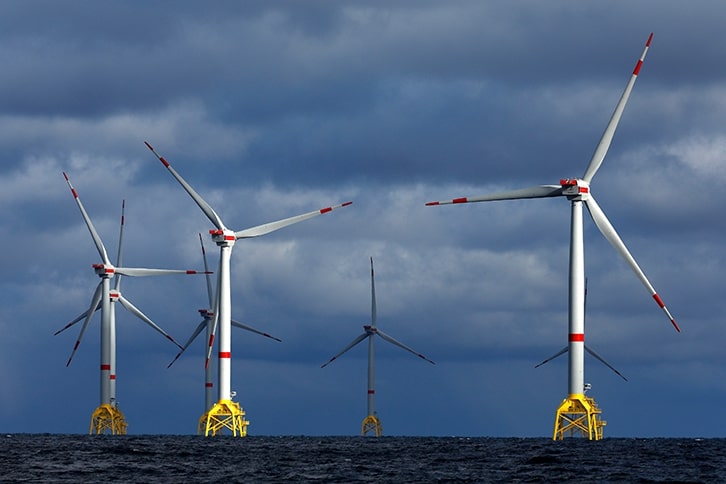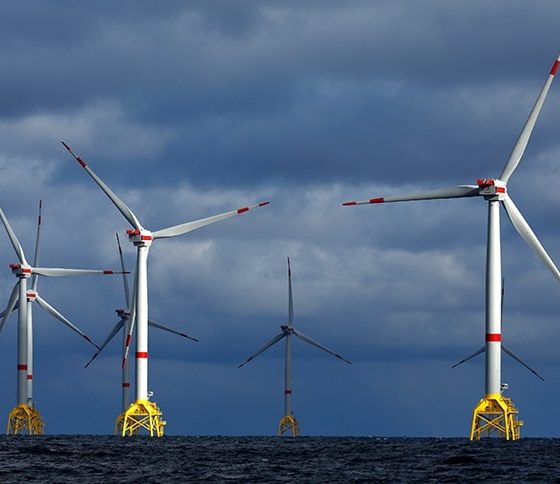Mercedes has announced a new wind power deal to ensure it reaches carbon neutrality as soon as possible.
Countless automotive industry giants have become involved in the renewable energy sector, with varying levels of involvement. Still, one of the most involved has been Mercedes, which has invested heavily in massive wind and solar projects to power its European operations. Now, the business has secured another source of that energy from power company Iberdrola, which will be delivering up to 140MW of power from a Baltic Sea wind power site, coming online in 2026.
Mercedes will begin to receive power from the Iberdrola Baltic wind project starting in 2027. They will likely be one, if not the largest, customer of the power project, seeing as the system is projected to produce only just over double what Mercedes is getting, 300MW.
While the total transaction amount has not been revealed by Mercedes or Iberdrola, it is expected to be a multi-hundred million euro deal, providing the automaker with energy at a discount. At the same time, Iberdrola would receive a dependable income from its sizable wind project.
This investment, set to save the automaker millions, comes at a time of incredibly high cost across the entire automotive industry. The process of factory retrofitting, combined with the process of EV development investments, has proved to be some of the most expensive undertakings automakers are currently undertaking. Perhaps nowhere has this better been seen than at Ford, which now anticipates a $3 billion loss within its EV business alone, thanks to these incredibly high upfront costs.
This is not the first wind project Mercedes has invested in, nor is it the only renewables deal the automaker has inked. Previously, the premium German automaker invested in a sizable wind project in Central Germany and has also invested in numerous solar projects in the South of the country. Mercedes previously aimed to receive 70% of its energy used for car production from renewable sources by 2030 but has recently revised that estimate upwards to 80%, thanks to its success in its power investments.
Mercedes has stated that thanks to the Baltic wind project and numerous other renewable investments, half of all its operations in Europe will be powered by clean energy by 2025.
Outside of energy generation, much like many other automakers, Mercedes is investing in energy storage technologies, including both battery storage systems and hydrogen storage capabilities, which will likely both serve to help ensure baseload energy is consistently supplied to the power-hungry industrial giant.
The funding provided by countless European automakers for the generation of renewable energy has been a primary reason Europe has become a leader in the use of the greener energy transition, with the most recent estimate being that roughly 22% of Europe is now powered by such projects. However, this progress has been stunted by the Russian invasion of Ukraine and the dramatic increase in production costs in recent months.
What do you think of the article? Do you have any comments, questions, or concerns? Shoot me an email at william@teslarati.com. You can also reach me on Twitter @WilliamWritin. If you have news tips, email us at tips@teslarati.com!

Energy
Tesla Megapack Megafactory in Texas advances with major property sale
Stream Realty Partners announced the sale of Buildings 9 and 10 at the Empire West industrial park, which total 1,655,523 square feet.
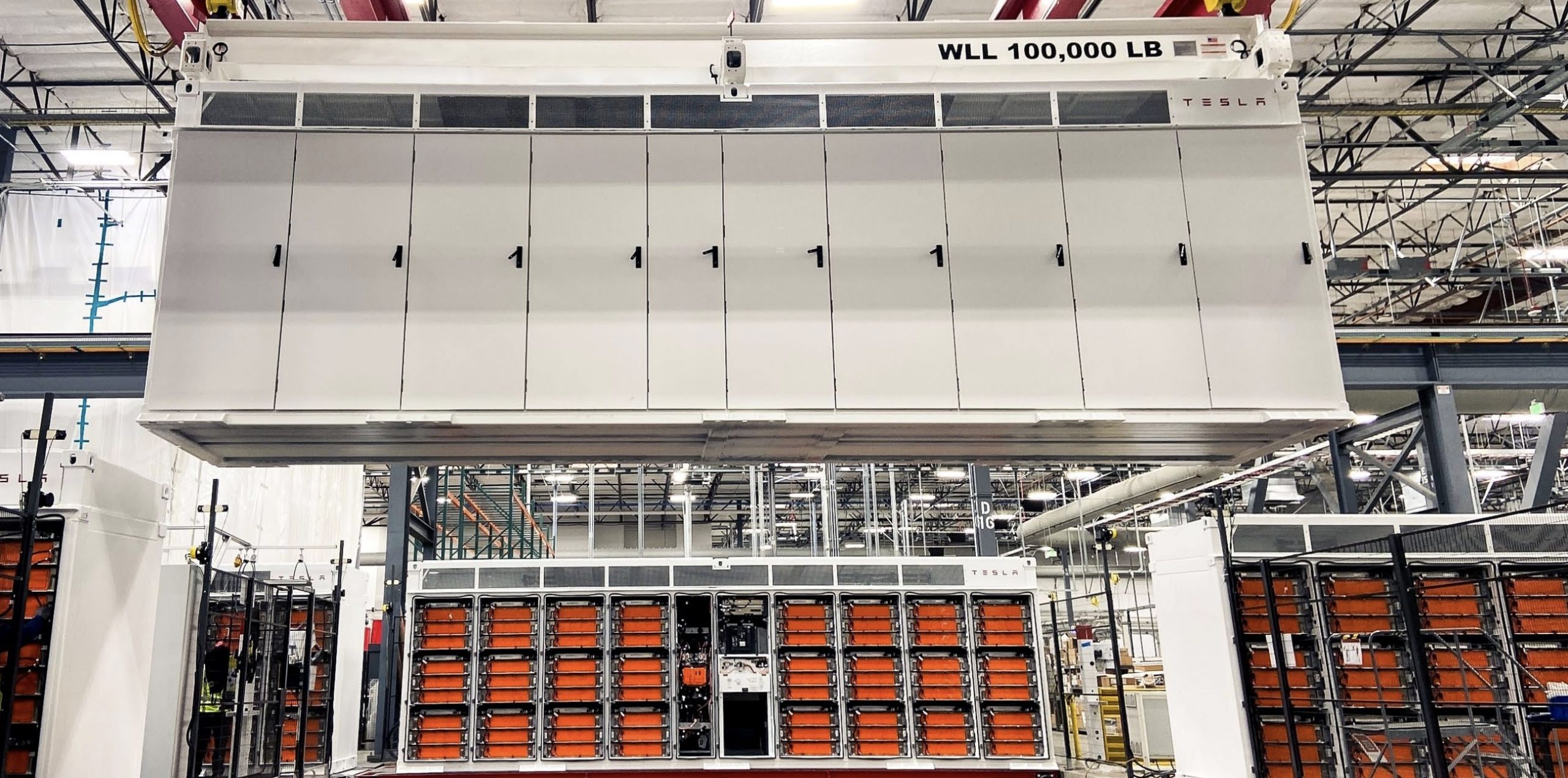
Tesla’s planned Megapack factory in Brookshire, Texas has taken a significant step forward, as two massive industrial buildings fully leased to the company were sold to an institutional investor.
In a press release, Stream Realty Partners announced the sale of Buildings 9 and 10 at the Empire West industrial park, which total 1,655,523 square feet. The properties are 100% leased to Tesla under a long-term agreement and were acquired by BGO on behalf of an institutional investor.
The two facilities, located at 100 Empire Boulevard in Brookshire, Texas, will serve as Tesla’s new Megafactory dedicated to manufacturing Megapack battery systems.
According to local filings previously reported, Tesla plans to invest nearly $200 million into the site. The investment includes approximately $44 million in facility upgrades such as electrical, utility, and HVAC improvements, along with roughly $150 million in manufacturing equipment.
Building 9, spanning roughly 1 million square feet, will function as the primary manufacturing floor where Megapacks are assembled. Building 10, covering approximately 600,000 square feet, will be dedicated to warehousing and logistics operations, supporting storage and distribution of completed battery systems.
Waller County Commissioners have approved a 10-year tax abatement agreement with Tesla, offering up to a 60% property-tax reduction if the company meets hiring and investment targets. Tesla has committed to employing at least 375 people by the end of 2026, increasing to 1,500 by the end of 2028, as noted in an Austin County News Online report.
The Brookshire Megafactory will complement Tesla’s Lathrop Megafactory in California and expand U.S. production capacity for the utility-scale energy storage unit. Megapacks are designed to support grid stabilization and renewable-energy integration, a segment that has become one of Tesla’s fastest-growing businesses.
Energy
Tesla meets Giga New York’s Buffalo job target amid political pressures
Giga New York reported more than 3,460 statewide jobs at the end of 2025, meeting the benchmark tied to its dollar-a-year lease.
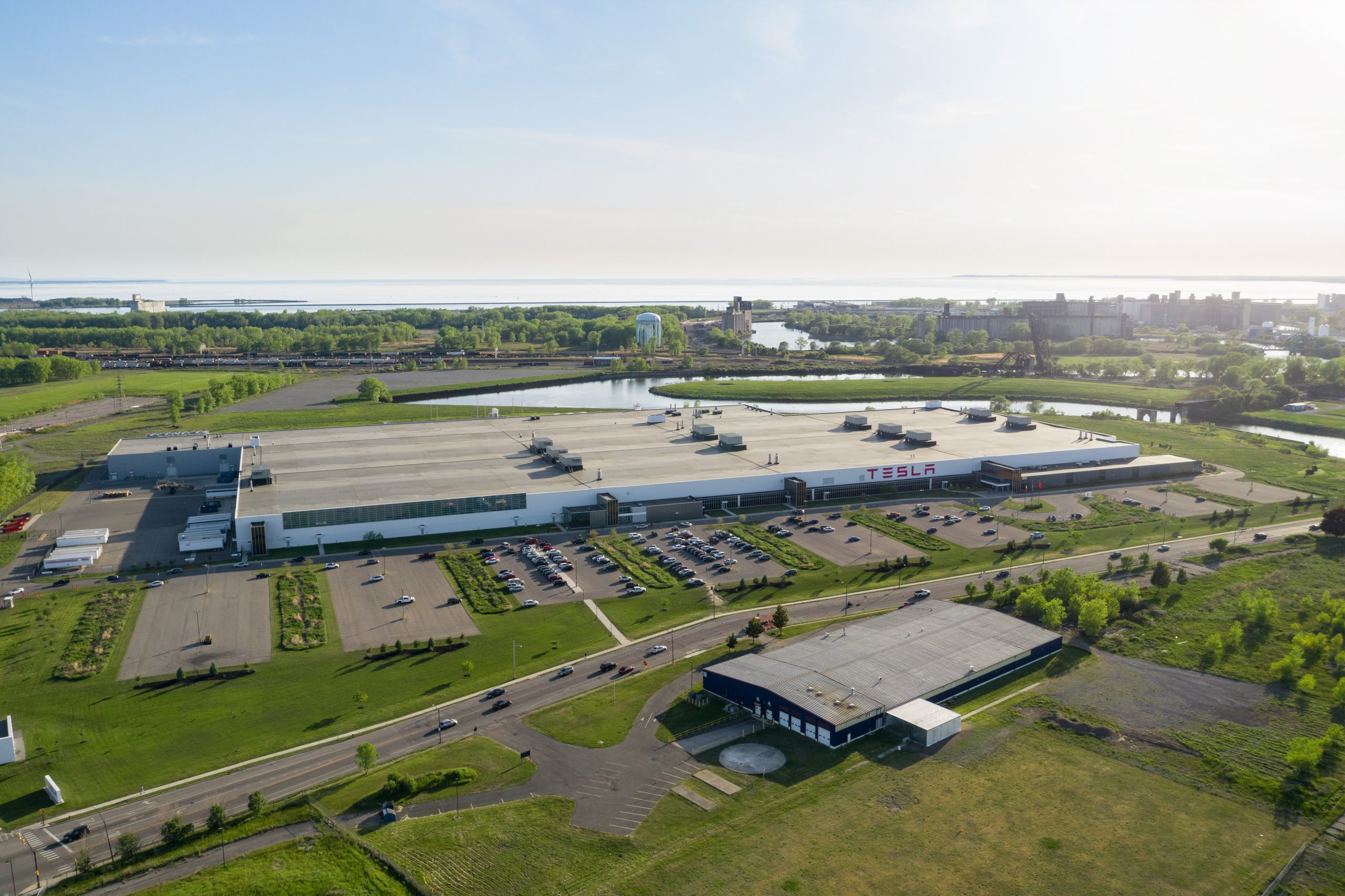
Tesla has surpassed its job commitments at Giga New York in Buffalo, easing pressure from lawmakers who threatened the company with fines, subsidy clawbacks, and dealership license revocations last year.
The company reported more than 3,460 statewide jobs at the end of 2025, meeting the benchmark tied to its dollar-a-year lease at the state-built facility.
As per an employment report reviewed by local media, Tesla employed 2,399 full-time workers at Gigafactory New York and 1,060 additional employees across the state at the end of 2025. Part-time roles pushed the total headcount of Tesla’s New York staff above the 3,460-job target.
The gains stemmed in part from a new Long Island service center, a Buffalo warehouse, and additional showrooms in White Plains and Staten Island. Tesla also said it has invested $350 million in supercomputing infrastructure at the site and has begun manufacturing solar panels.
Empire State Development CEO Hope Knight said the agency was “very happy” with Giga New York’s progress, as noted in a WXXI report. The current lease runs through 2029, and negotiations over updated terms have included potential adjustments to job requirements and future rent payments.
Some lawmakers remain skeptical, however. Assemblymember Pat Burke questioned whether the reported job figures have been fully verified. State Sen. Patricia Fahy has also continued to sponsor legislation that would revoke Tesla’s company-owned dealership licenses in New York. John Kaehny of Reinvent Albany has argued that the project has not delivered the manufacturing impact originally promised as well.
Knight, for her part, maintained that Empire State Development has been making the best of a difficult situation.
“(Empire State Development) has tried to make the best of a very difficult situation. There hasn’t been another use that has come forward that would replace this one, and so to the extent that we’re in this place, the fact that 2,000 families at (Giga New York) are being supported through the activity of this employer. It’s the best that we can have happen,” the CEO noted.
Energy
Tesla launches Cybertruck vehicle-to-grid program in Texas
The initiative was announced by the official Tesla Energy account on social media platform X.
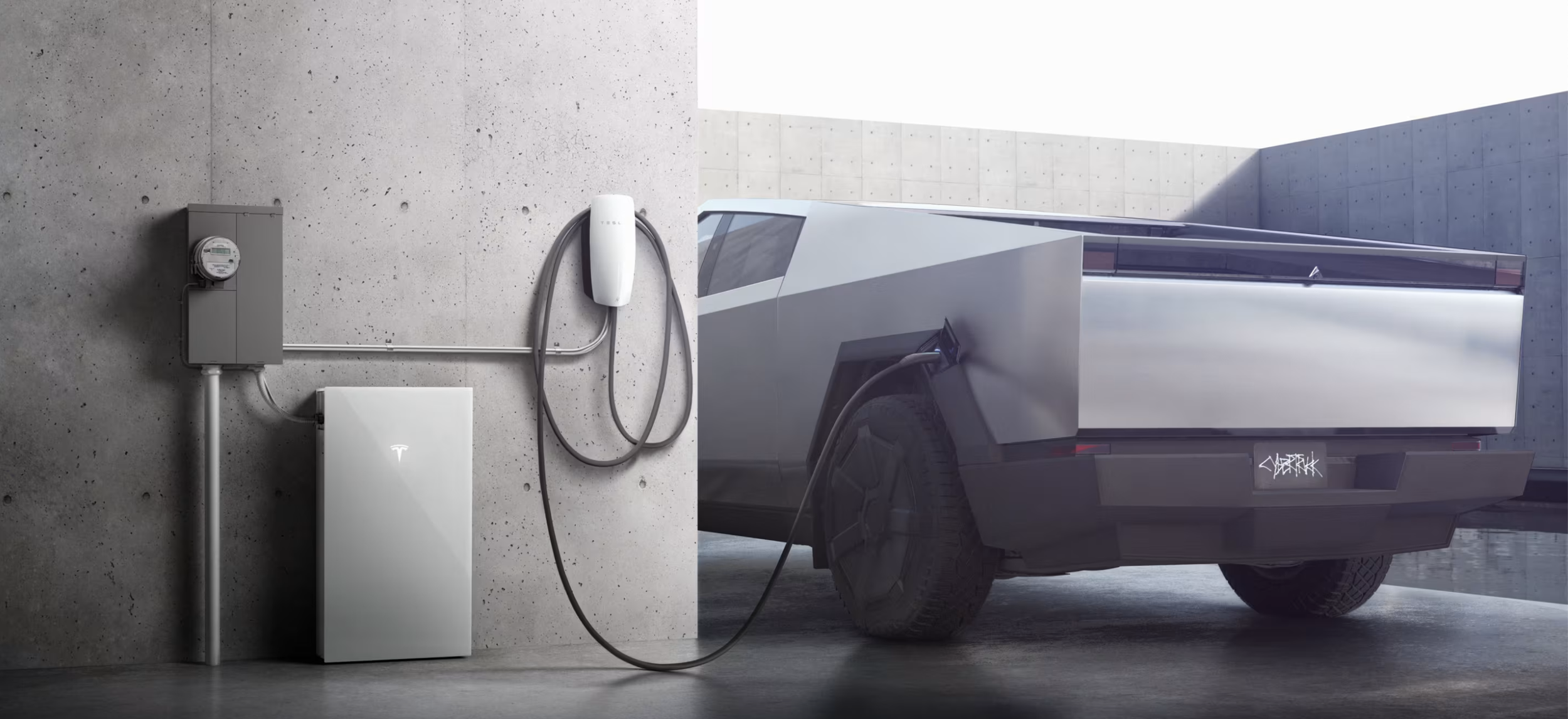
Tesla has launched a vehicle-to-grid (V2G) program in Texas, allowing eligible Cybertruck owners to send energy back to the grid during high-demand events and receive compensation on their utility bills.
The initiative, dubbed Powershare Grid Support, was announced by the official Tesla Energy account on social media platform X.
Texas’ Cybertruck V2G program
In its post on X, Tesla Energy confirmed that vehicle-to-grid functionality is “coming soon,” starting with select Texas markets. Under the new Powershare Grid Support program, owners of the Cybertruck equipped with Powershare home backup hardware can opt in through the Tesla app and participate in short-notice grid stress events.
During these events, the Cybertruck automatically discharges excess energy back to the grid, supporting local utilities such as CenterPoint Energy and Oncor. In return, participants receive compensation in the form of bill credits. Tesla noted that the program is currently invitation-only as part of an early adopter rollout.
The launch builds on the Cybertruck’s existing Powershare capability, which allows the vehicle to provide up to 11.5 kW of power for home backup. Tesla added that the program is expected to expand to California next, with eligibility tied to utilities such as PG&E, SCE, and SDG&E.
Powershare Grid Support
To participate in Texas, Cybertruck owners must live in areas served by CenterPoint Energy or Oncor, have Powershare equipment installed, enroll in the Tesla Electric Drive plan, and opt in through the Tesla app. Once enrolled, vehicles would be able to contribute power during high-demand events, helping stabilize the grid.
Tesla noted that events may occur with little notice, so participants are encouraged to keep their Cybertrucks plugged in when at home and to manage their discharge limits based on personal needs. Compensation varies depending on the electricity plan, similar to how Powerwall owners in some regions have earned substantial credits by participating in Virtual Power Plant (VPP) programs.
